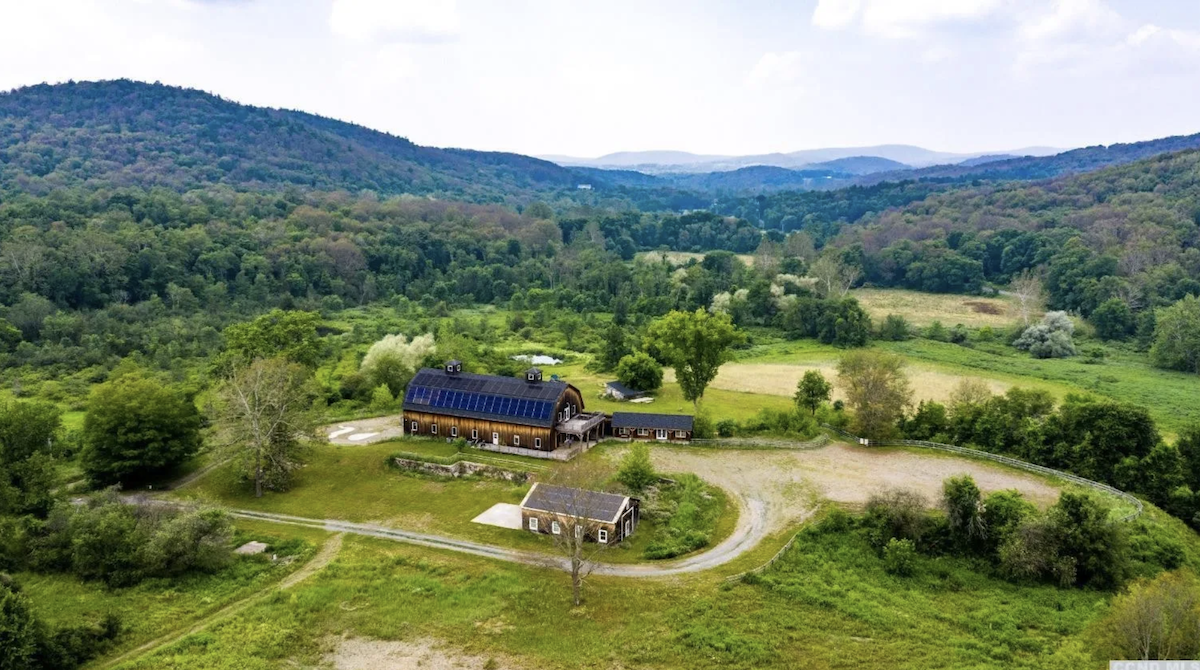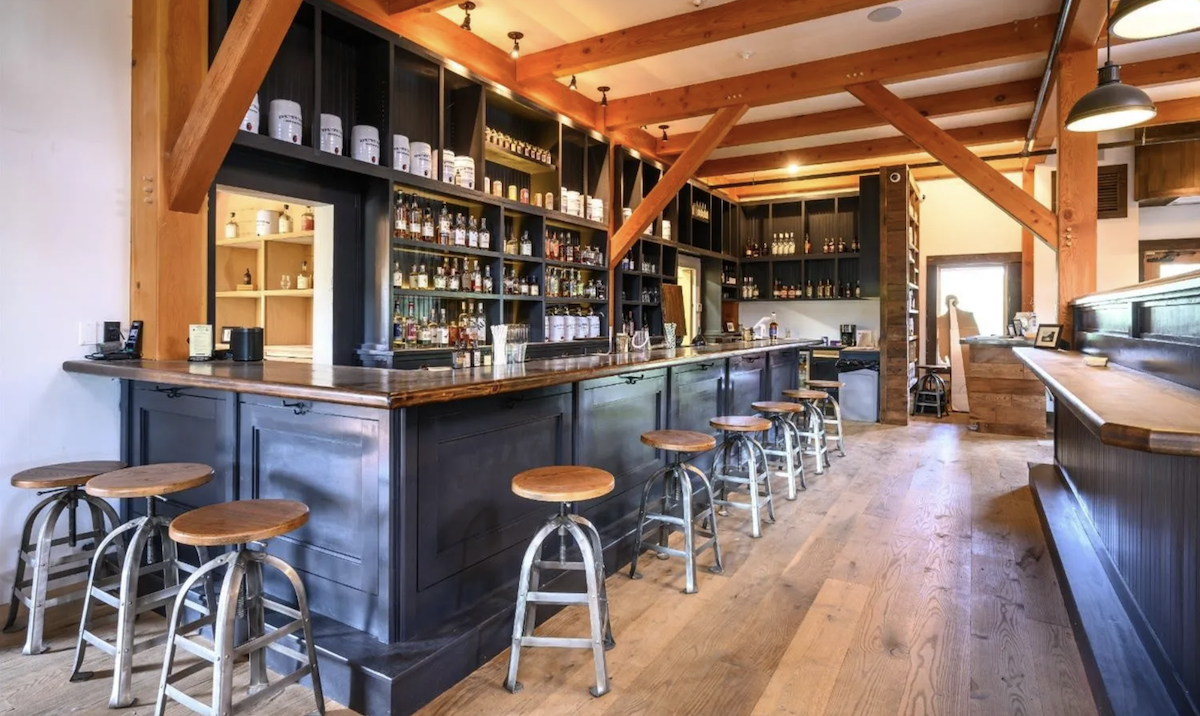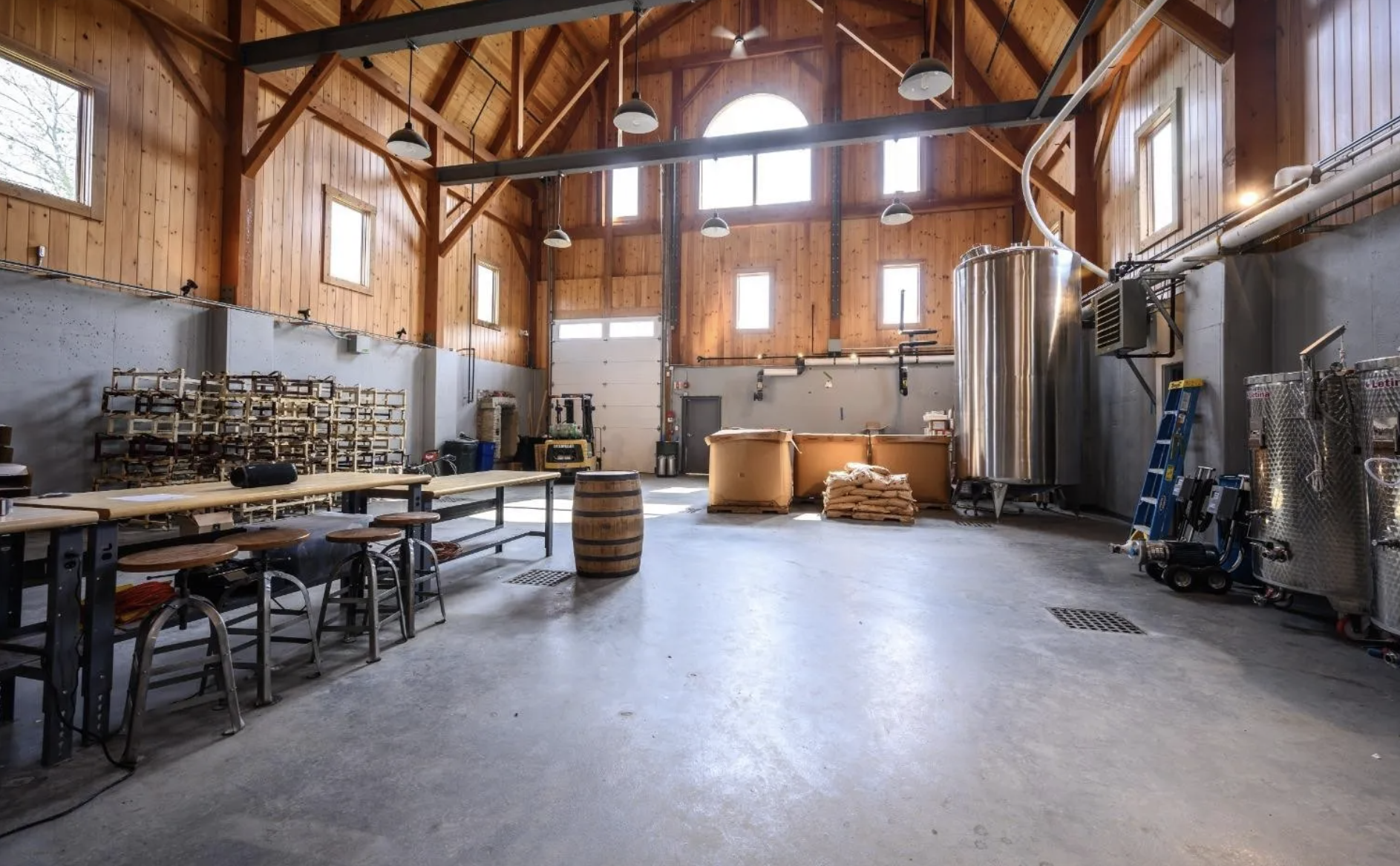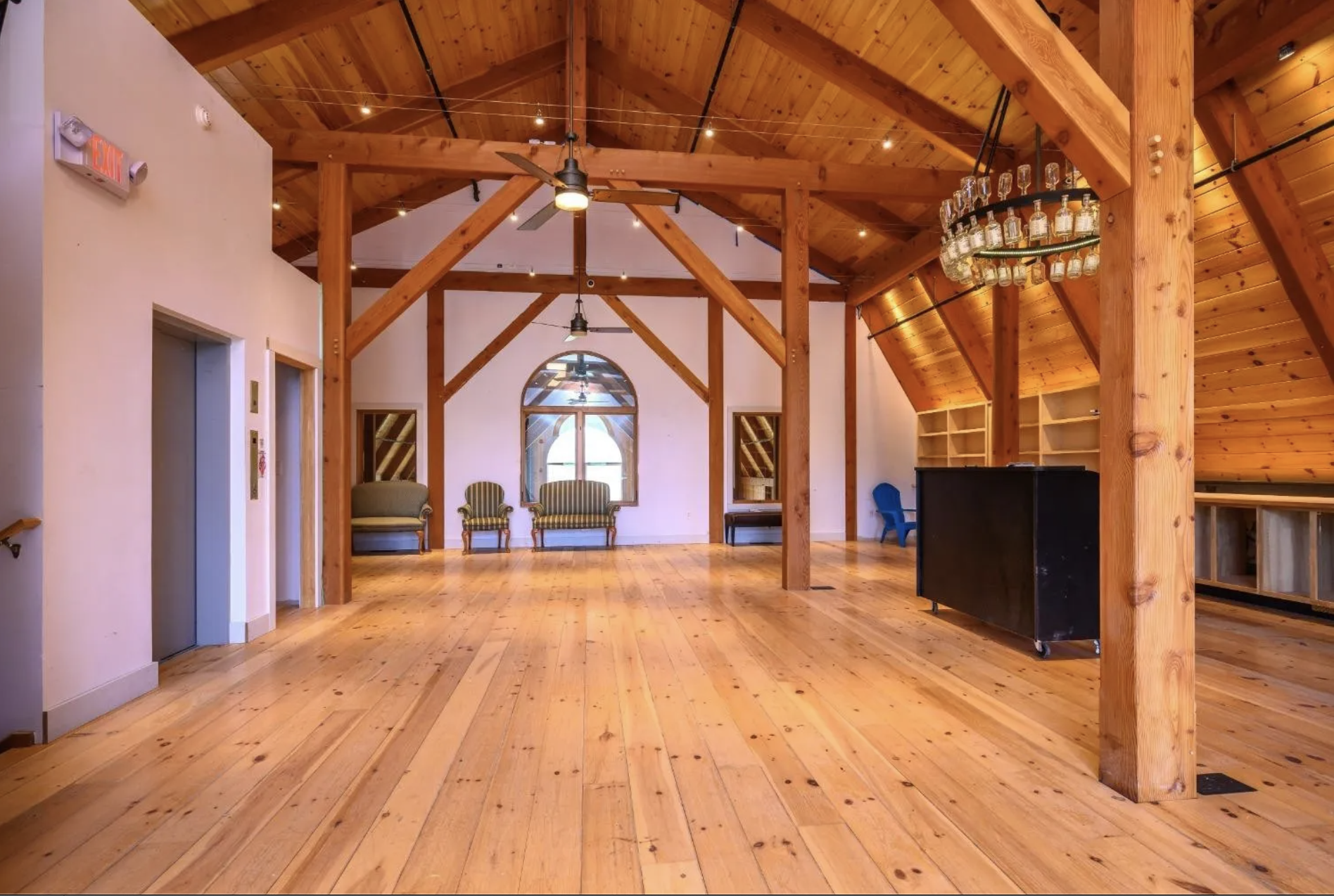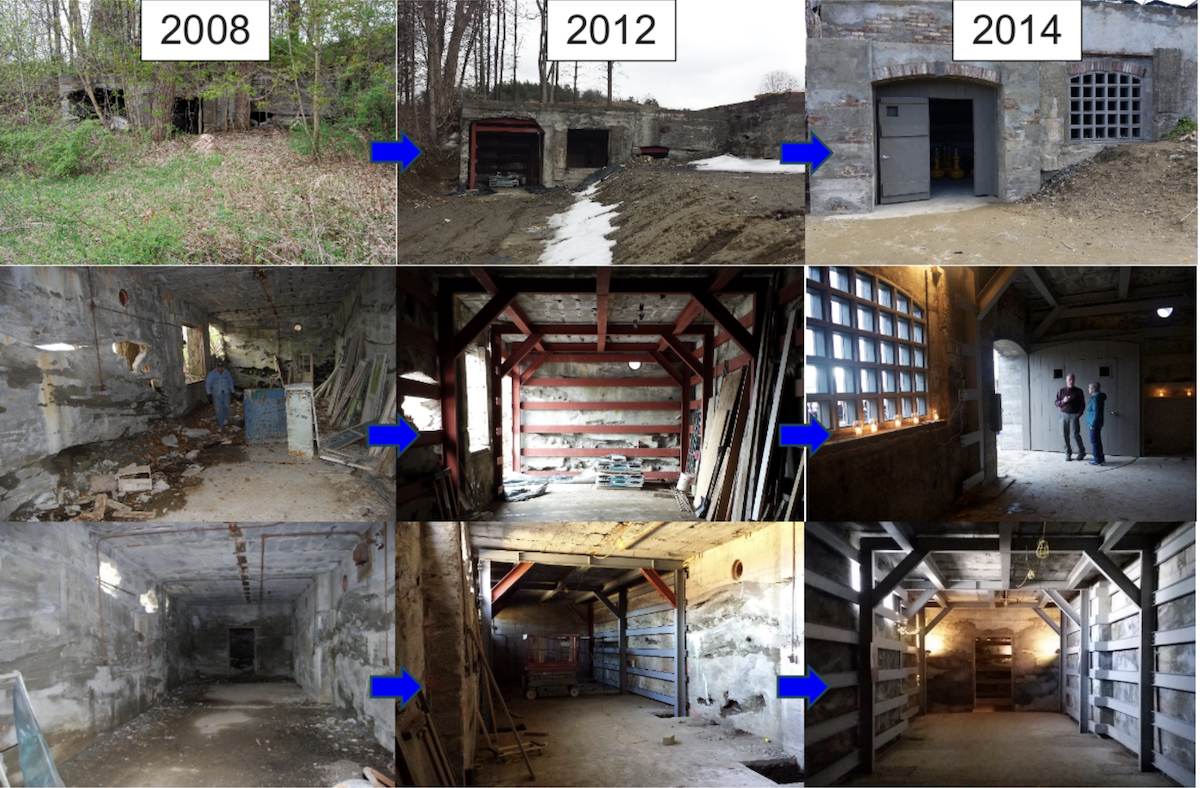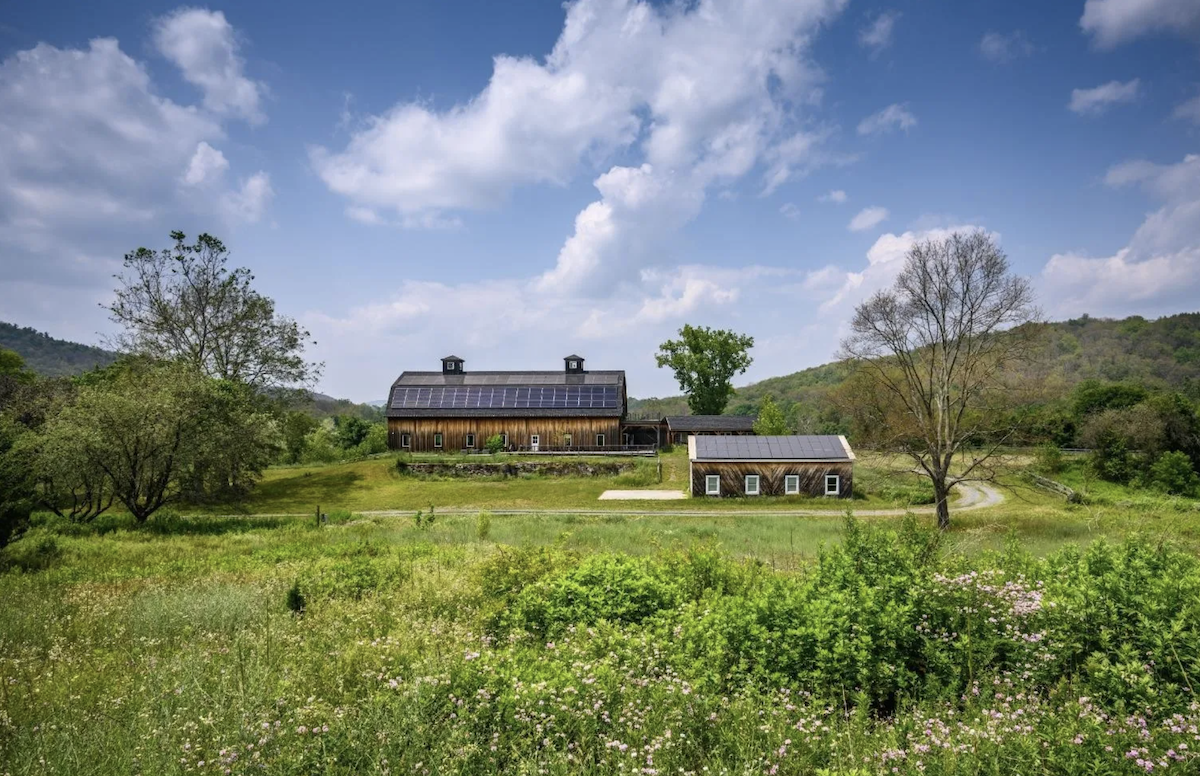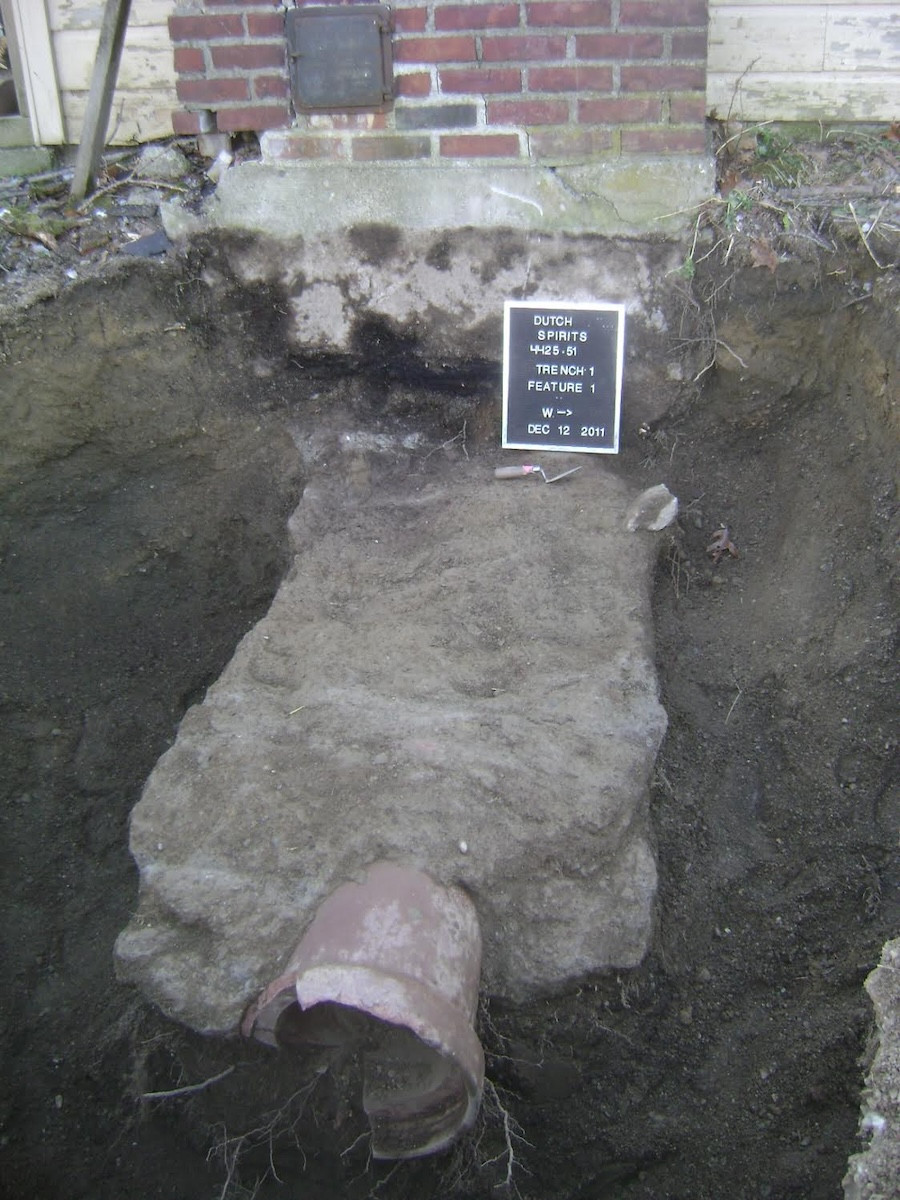Modern Distillery with Dramatic Bootlegging History for Sale in Pine Plains
Dutch's Distillery brought the spirit of a prohibition era operation back to life. Now it's ready for its next chapter.

Dutch's Distillery brought the spirit of a prohibition era operation back to life. Now it's ready for its next chapter.
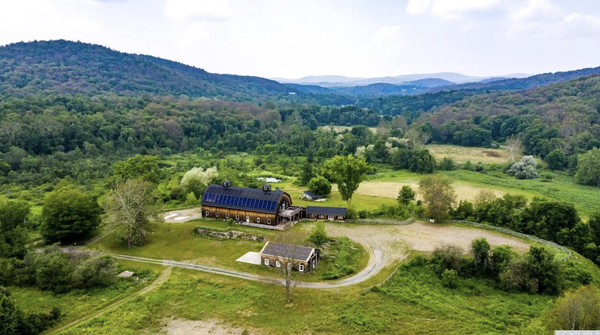
Harvest Homestead Farm in Pine Plains has played many roles over the years. It has been a productive farm raising turkeys, chickens, pigs, cows, potatoes, and corn, and it has also been a distillery twice—once illegally, during prohibition, and again, over the past decade, above board as Dutch’s Distillery. The legendary property is now for sale for $4.5 million, and the recently revitalized operation is ready for its next owner to be a part of a thrilling legacy.
In 1932, the farm was raided by federal agents after it was discovered that notorious gangster Dutch Schultz was running a massive bootlegging operation here. The New York Times reported in 2020 that it might have been the largest illegal distillery on the East Coast.
During the FBI's bust a huge concrete bunker was found, containing two 2,000-gallon stills, 10,000 pounds of sugar, and 1,000 gallons of Sugar Wash Moonshine. The site can still be toured today beneath the modern tasting room. To protect their clandestine hooch manufacturing operation, Schultz and his gang constructed an extensive network of bootlegging tunnels, which is reported to be one of the most elaborate ever discovered.
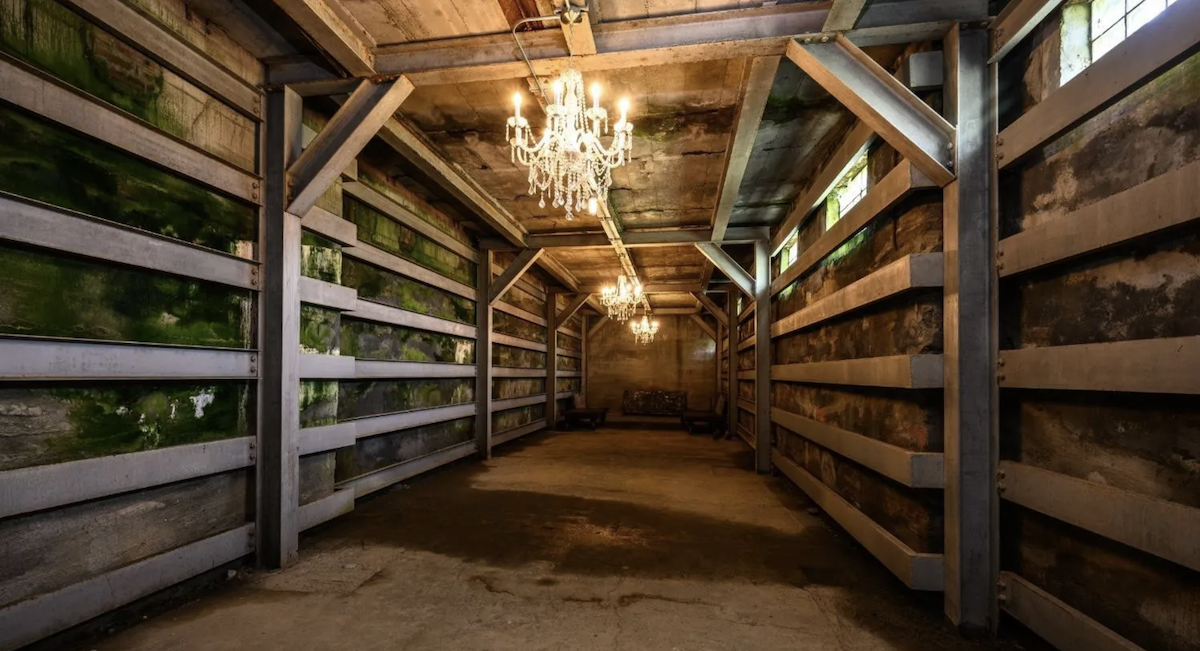
A satabalized and preserved section of the hidden bootlegging operation.
According to historical accounts, when Schultz started the operation, rotating crews were brought in to build the tunnels and dig out the bunker in secret. The tunnels exited in multiple directions, and the ingenuity of the underground complex served Schultz and his goons well—when the place was raided, only two arrests were made because everyone else escaped underground.
Long after prohibition ended, the state was still subject to laws limiting alcohol production, but in 2007, New York State passed the Farm Distillery Act, allowing small craft distilleries to start up again. Distilleries popped up all over, launching a full-blown distilling renaissance that’s now a major draw for the region.
In 1969, Harvest Homestead Farm was purchased by Janet and Charles Adams. Thirty years prior, Charles had worked harvesting potatoes for the bootleggers, and the Adams family kept the land’s buried secrets quiet until 2008, when Charles’s grandson Alex Adams and close friend Ariel Schlein had the idea to bring the place back to life as a distillery, this time above ground.
Schlein's first impression of the farm: ”It looked like a dilapidated ruin," he says. In many ways, it looked the way it had for centuries—rolling hills of farmland with a few deteriorating barns and outbuildings. But Schlein was excited by the story, quite literally, buried beneath. Despite the amount of work the property needed— excavating the history, revitalizing the land, and building the modern fully operational Dutch's Distillery in 2011—complete with a spacious tasting room serving moonshine in homage to the site's past, as well as a line of whiskey and other locally produced spirits. Schlein, a former Wall Street financier, had the energy, and means for the project. "It was a no-brainer," he says.
"It seemed like everyone in the distilling industry had a story about moonshine or their grandfather's recipe," Schlein says, adding that he found those stories a bit vanilla and manufactured. "This property was more than a semifictional kind of narrative, and the fact that this piece of American history existed—but was so overgrown—was the nucleus of the idea."
The Adams family still owns most of the land, and Schlein owns the new barns and distillery buildings, currently listed for sale with Andrew Gates of Houlihan Lawrence. The next steward of the property can buy the distillery buildings and just a few of the surrounding acres or they can purchase the entire 343-acre farm, depending on their interest and needs.
So why did Schlein go through so much trouble, to build such a major structure and distilling operation, and start a new business from scratch, if he didn't want to keep this corner of Dutchess County history to himself?
"It was a once-in-a-lifetime kind of opportunity to go back in time and resurrect this property,” Schlein says. Prohibition was repealed only a year after the property was raided, and as Schlein was refurbishing the property, it became clear how thoughtfully the original distillery had been designed. "They'd done half the work for me," Schlein says.
"The restoration process was very expensive—it was exhaustive—especially because I didn't just go in with a sledgehammer," Schlein says. "We brought in archaeologists to catalog everything, and everything started from the history and the uniqueness of the place, and I wanted to take great care in renovating and retelling that story."
While it would be impossible to learn everything that went on in those bunkers and tunnels, the archaeologists completed an extensive archaeological survey and review, and Harvest Homestead Farm was added to the New York State Archaeological Inventory as a "Bootleg Era Bunker Complex” in July 2011. The property is also eligible for the National Register of Historic Places. "The whole place isn't meant to be a museum in a static way," Schlein says. "But it's meant to be experiential and more like a living time machine."
Between 2011 and 2015, Schlein ran the distillery and tasting room and then passed the baton to Brendan McAlpine in 2017, who went through the steps for Dutch's Distillery to receive its federal distilling permit. They received the permit on October 10, 2018, which happened to land exactly 86 years to the day after the FBI and local law enforcement raided the farm. But other business projects pulled McAlpine away and Dutch's once again sits dormant.
Schlein's efforts to restore Dutch's were gargantuan in scale. After restoring the property and constructing the new building, he felt that he'd fulfilled his obligation to pick up where things dropped off during Prohibition. "At that point, I was already kind of settled in my heart," Schlein says. "I'd completed an unfinished job, both for the Adams family and for the town."
"I didn't build this thing for my lifetime—I built it for future generations and future lifetimes," Schlein says. "It was expensive—and it took a bit of a quixotic mindset—and if I were a little saner this probably wouldn't have happened."
Schlein has been involved with Harvest Homestead Farm for 15 years. The first time he leased it out, he recognized the importance of nonattachment. He's reluctant to think about what he wants for Dutch's future because that future belongs to someone else and it's time for him to let go of the narrative."As much as I absolutely love it, I'm also at peace as I can with letting it go," he says.
